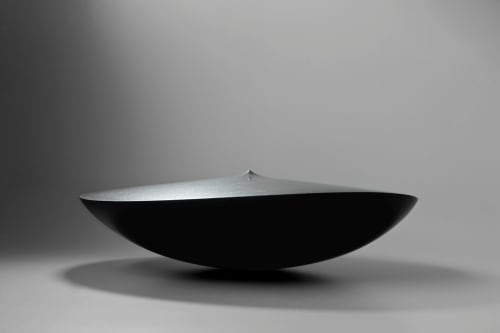Sculpture has always featured prominently in the rich history of Egyptian material culture. Stylised human, animal and hybrid forms decorated the tombs of the Pharaonic elite, and monumental structures paid homage to their many gods and kings. Considering this remarkable, 5000-year-old heritage, much of it still extant, it is little wonder that a stylistic continuum exists in modern and contemporary Egyptian sculpture. By looking at the artwork of sculptors from three distinct generations, this exhibition focuses on the artistic legacy and development of Egyptian sculpture over the last 100 years.
Beginning chronologically with a bronze work by the Father of modern Egyptian sculpture, Mahmoud Mokhtar (b.1891 d.1934) whose revolutionary style seamlessly combined aspects of formalised pharaonic statuary with a modern European artistic sensibility, seen here in his statuesque, Au Bord Du Nil (At the Edge of the Nile), we move on to the bronze sculpture, Marie Nilus by Adam Henein (b.1929 d. 2020). Titled after the Potamoi that represented the River Nile in Ancient Greek mythology, the figure displays the clean, minimal lines and features characteristic of the artist's lifelong fascination with his county's storied past. Whilst the subject matter of both of these sculptures is rooted to that most uniquely Egyptian of themes, the life-giving river Nile, the third sculpture, an abstract work by Armen Agop (b.1969) clearly deviates in form and subject matter. However, the untitled work from the recent series, Mantra demonstrates a similar stylistic approach in its linear form and elegant minimalism. Additionally, Agop's use of material is reminiscent of the black granite used in the sculptures and monuments at Karnak or Thebes.
Inspired by the late Adam Henein's theory which posited that all significant sculpture in Egypt invariably drew its inspiration from pharaonic roots, Mokhtar-Henein-Agop (100 Years of Egyptian Sculpture)celebrates this extraordinary legacy and attempts to chart the development of modern and contemporary Egyptian sculpture through three significant artworks.



